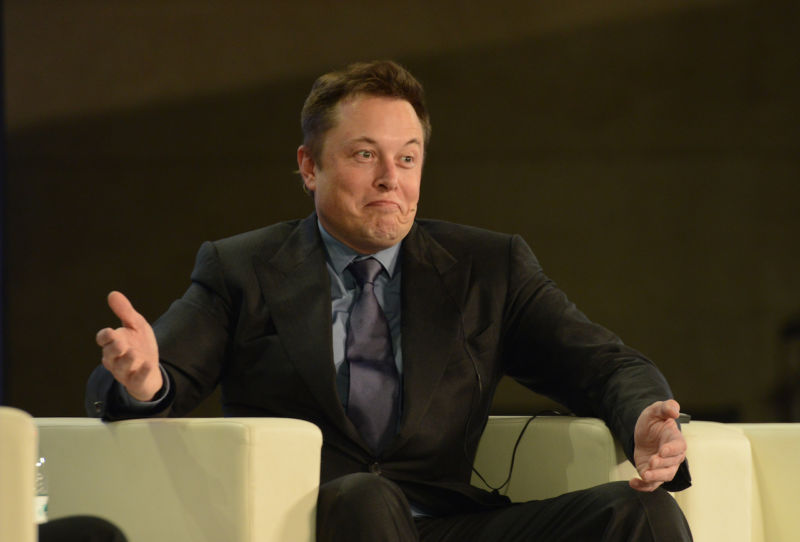
The Securities and Exchange Commission is having a hard time reining in Elon Musk’s social media use, according to a new report from The Wall Street Journal.
The regulator sent Tesla three sternly worded letters between August 2019 and June 2020, asking Tesla’s attorney’s to enforce a 2018 settlement that demanded greater oversight of Musk’s social media posts. “Tesla has abdicated the duties required of it by the court’s order,” said the SEC in a letter from May of last year.
The three letters, including the SEC’s records of its correspondence with Tesla’s attorneys, were obtained by the Journal through a Freedom of Information Act request. They show a regulator struggling to enforce a settlement that, from the outset, seemed challenging to implement.
The brouhaha began when Musk sent his infamous “funding secured” tweet. In August 2018, Musk announced that he would be taking Tesla private at $420 per share. That sent the company’s stock soaring, only to see it plummet when funding turned out to not, in fact, be secured. Investors complained en masse to the SEC about the stunt. The regulator investigated the matter and first attempted to settle things with Musk and Tesla. Musk balked, so the SEC sued.
In court, Musk risked losing the ability to be an officer or board member, not just at Tesla but at any publicly listed company in the US. So rather than go to court, where the SEC was the heavy favorite, Musk and Tesla settled, with both defendants paying $20 million in penalties. Musk also stepped down as chairman of Tesla’s board.
But that wasn’t all. The SEC also stipulated another condition in the settlement: Tesla would have to implement “controls and procedures to oversee Musk’s communications.” Musk would have to seek approval for tweets that “contain or could contain” material information—basically anything that could affect Tesla’s stock price.
Refining the settlement
From the beginning, it was clear that Musk had his own interpretation of the settlement terms.
Less than five months after the settlement, Musk tweeted that Tesla “will make around 500k in 2019.” He later clarified that he meant an annualized production rate of 500,000 cars. He didn’t clear either statement with Tesla lawyers, so the SEC took him to court, asking that he be held in contempt.
The court instead ordered both parties to negotiate a deal, which resulted in the SEC defining in more specific terms which of Musk’s communications would require legal approval. They included communications about Tesla’s finances, production and delivery numbers, new lines of business, sales projections, proposed mergers, fundraising efforts, and regulatory decisions, among others. The new settlement was reached on April 26, 2019.
Well, it turns out the new settlement didn’t change much. Just over three months later, Musk tweeted about a Tesla energy product. “Spooling up production line rapidly. Hoping to manufacture ~1000 solar roofs/week by end of this year.” The tweet clearly mentioned “production and delivery numbers,” the SEC wrote in a letter, which was verboten. Tesla’s lawyers replied that it didn’t matter because Musk’s tweet was “wholly aspirational,” according to SEC records of its correspondence with the company.
Musk poked the SEC again on May 1, 2020, when he tweeted, “Tesla’s stock price is too high imo.” The SEC again wrote a letter, to which Tesla replied that the tweet didn’t need approval because it was just a “personal opinion.”
Losing patience
By this point, the SEC’s correspondence notes make clear that the regulators were losing patience. They asked Tesla for records related to the stock price tweet, and Tesla’s lawyers revealed that they had none. The SEC wrote back, saying, “In the face of Mr. Musk’s repeated refusals to submit his covered written communications on Twitter to Tesla for pre-approval, we are very concerned by Tesla’s repeated determinations that there have been no policy violations because of purported carve-outs.”
Tesla’s attorneys replied that tweeting about the company’s stock price wasn’t covered under the new settlement—and that they thought the regulator was out to “harass” Musk. “The serial nature of these investigations leaves us gravely concerned that the SEC is targeting Mr. Musk for an improper purpose,” they wrote.
In the final letter the WSJ obtained, the SEC asked Tesla to “reconsider its positions in this matter by acting to implement and enforce disclosure controls and procedures.”
The SEC’s frustrations aren’t surprising. Social media use has upended the way people communicate around the world, throwing a new element of chaos into what had been routine discourse. In many ways, the bigger surprise was that the situation took so long to bleed into the world of business.
To see how social media has amplified some voices and their influence to nearly unprecedented heights, look no further than today’s spike in the share price for Samsung Publishing. The company, which is not related to the Samsung conglomerate, soared more than 10 percent during trading hours today. The cause? Elon Musk, of course, who tweeted an observation about the viral nature of the kids’ song “Baby Shark.” “Baby Shark crushes all! More views than humans,” Musk tweeted.
Samsung Publishing owns the company that produced a “Baby Shark” music video.
https://arstechnica.com/?p=1769282

